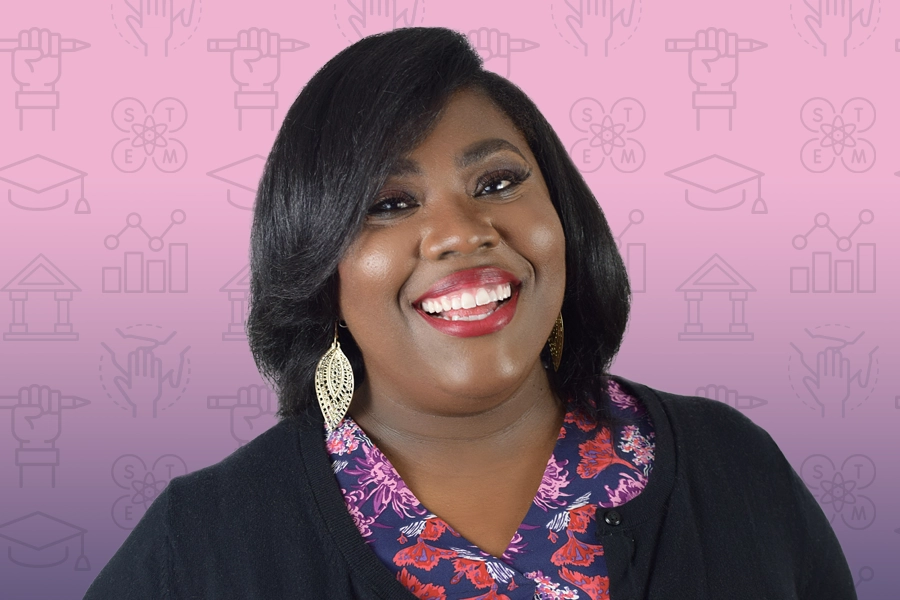
Advocating for HBCU Students
CMU alumna Brittany Mosby transforms higher education in Tennessee
By Heidi Opdyke
As a Carnegie Mellon University student, alumna Brittany Mosby considered going to law school or working for the government.
Now as the inaugural director of Historically Black Colleges and Universities (HBCUs) Success in Tennessee, she combines both those career pathways with her passion for education, policy and advocacy work.
“We’re the only state that has this type of policy director position, and it’s a lot of building the plane as we’re flying it,” says Brittany, who graduated from Mellon College of Science in 2010 with a master’s degree in mathematical sciences. “It’s been quite an adventurous ride. I get to advocate for underrepresented students and underfunded institutions. It’s become a passion.”
She thinks a lot about creating and supporting programs for student success. A third-generation graduate of Spelman College, she majored in mathematics and was leaning toward a career in the National Security Agency or another federal agency when a professor suggested she apply for Carnegie Mellon’s Summer Undergraduate Applied Mathematics Institute, also known as SUAMI, in 2006.
“The government was the largest employer of mathematicians,” says Brittany, who is also on the board of directors for the National Association of Mathematicians. “So, prior to attending SUAMI, that was the ceiling of my thinking. I can’t emphasize enough how the program was a major decision point for me in pursuing graduate school.”
She says that while at Spelman, an all-women, small and historically Black liberal arts college, she did math with people who looked like her, she wasn’t around many researchers or graduate students.
“At the time, CMU preferred students from liberal arts colleges for SUAMI, and that exposure factor made a lot of sense to me in hindsight. You can’t overstate what that immersion experience can do for a student. Spelman opened the door for math, and CMU is where I learned how broad opportunities in math could be."
“At the time, CMU preferred students from liberal arts colleges for SUAMI, and that exposure factor made a lot of sense to me in hindsight. You can’t overstate what that immersion experience can do for a student,” she says. “Spelman opened the door for math, and CMU is where I learned how broad opportunities in math could be."
After graduating from Spelman, she completed her master’s studies at Carnegie Mellon. Brittany says that while she considered continuing to her Ph.D., law school or being an actuary, in the end she wanted to make an impact in education. She went to teach at Pellissippi State Community College in her hometown Knoxville, Tennessee.
“I wanted to be a transformative educator for my students in the way that I had been having transformative experiences, which is how I ended up in the city where I grew up and where my mom grew up,” she says. “It was amazing. I was a professor for kids of people who I graduated high school with, and I was the professor for the woman who used to babysit me growing up.”
After eight years in the classroom, Brittany returned to college and earned her Ph.D. in higher education leadership and policy in 2019 from Vanderbilt University. Soon after, she was named the first director of HBCUs Success where she advocates for Tennessee’s seven historically Black colleges and universities.
Brittany uses her role to promote STEM education and help the state government provide avenues for student success. For example, the state was considering changing the amount of need-based financial aid scholarships and potentially lowering the amount provided to students who attend private institutions, which includes some HBCUs.
“Over 50% of the HBCU students who had state aid had it through this particular program,” she says. “I was able to be at the table and add the unique perspective that lowering the amount would disproportionately affect the students who attend HBCUs and rely on this aid, in addition to federal Pell grants, to cover the cost of tuition. Being a part of that conversation was empowering for the HBCUs.”
Moving forward, she hopes the future will allow her to continue to make education more attainable for anyone interested.
“I’m all about access to higher education,” she says.